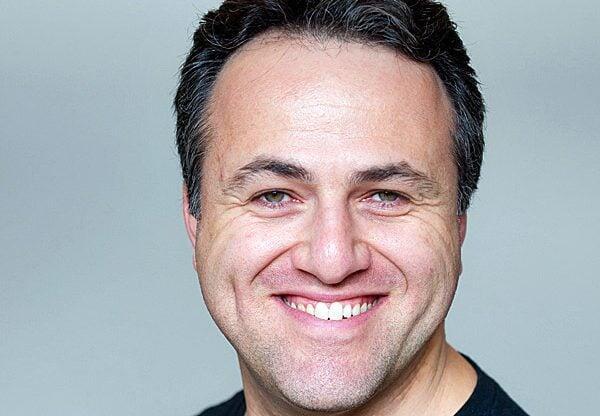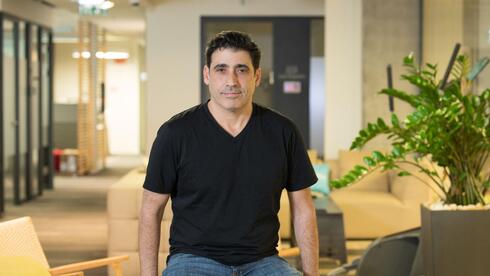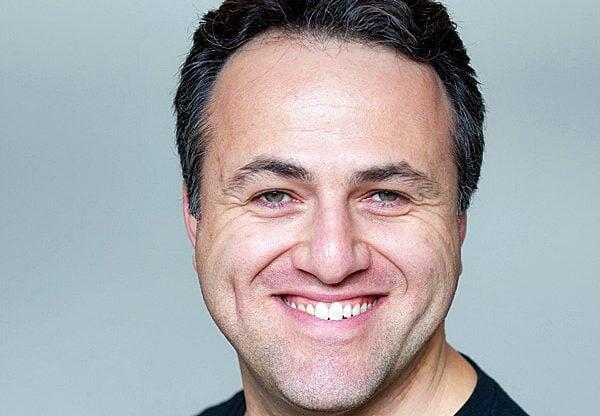
2025 VC Survey
UpWest's 2025 outlook: "Cautious optimism" for Israel's tech sector with AI and cyber leading
“With greater stability and clarity in Israel’s situation, investor confidence should improve," said Gil Ben-Artzy.
“There is cautious optimism as we enter 2025. Forecasts indicate an improvement in the business environment, with interest rates expected to continue to come down, the IPO market to finally reopen, and a more favorable regulatory environment for businesses,” said UpWest’s Gil Ben-Artzy. “With greater stability and clarity in Israel’s situation, investor confidence should improve, and we expect to see more international investors returning to Israel and backing Israeli entrepreneurs.”
Ben-Artzy joined CTech for its 2025 VC Survey to share insights and predictions for the next few months.
“I anticipate an increase in the number of startups completing funding rounds in 2025,” he added.
You can catch the whole interview below.
Fund ID
Name of fund/funds: UpWest
Total sum of the fund: $120m
Partners: Shuly Galili, Gil Ben-Artzy, Lia Cromwell
Notable/select portfolio companies (active): HoneyBook, Stampli, Imubit, CyCognito, BeeHero, Balance, Zenity.
Notable exits: SentinelOne
2024 is over. How can you summarize it in terms of the Israeli high-tech industry?
The past year has been challenging for Israel’s tech sector, though it is important to note that the Israeli market’s performance has tracked the US and global markets, emphasizing Israeli resilience and ability to deliver despite the war. Israeli tech companies have experienced challenges due to the local situation, but their resilience was quite apparent. Taking everything into consideration, it is impressive to see that funding and new company formation trends have mirrored those of the US when faced with such significant additional challenges here that no other nation faces.
Globally, we experienced a continued economic slowdown and a dropoff in the number of M&A deals. The IPO market remained mostly closed, and international funds reduced their fundraising activities. 2024 was less a case where there was a global boom that Israel missed out on; rather, the Israeli tech industry was influenced by these broader economic trends (as shown in recent data from IVC-Gronitzky-KPMG and Pitchbook).
Looking ahead to 2025 - What challenges and opportunities await the Israeli high-tech sector in the coming year, and how are you, as investors, preparing for them?
There is cautious optimism as we enter 2025. Forecasts indicate an improvement in the business environment, with interest rates expected to continue to come down, the IPO market to finally reopen, and a more favorable regulatory environment for businesses. With greater stability and clarity in Israel’s situation, investor confidence should improve, and we expect to see more international investors returning to Israel and backing Israeli entrepreneurs.
I anticipate an increase in the number of startups completing funding rounds in 2025.
Artificial intelligence will continue to be a hot area for investment, particularly in the application layer. Many AI startups emerged in 2024, and 2025 will reveal which solutions gain actual user adoption. Cybersecurity will also remain a major domain, as Israel continues to excel.
There is also growing interest in defensetech. However, we believe this sector is likely to face significant challenges over the next few years due to regulatory hurdles, lengthy sales processes, and the time required to implement these technologies effectively.
2024 was one of UpWest's most active years in terms of new investments. We have been highly engaged and plan to maintain a strong investment pace in 2025. Over the past 12 months, we invested in companies across diverse sectors, including AI, cybersecurity, fintech, digital health, legaltech, govtech, and more. We expect to continue partnering with companies that deliver meaningful value — both horizontally across organizations and vertically within specific industries. We intend to build on this momentum next year, investing aggressively in innovative technologies and transformative solutions.
How will new American leadership affect the global high-tech industry or economy? And where does this place Israel and its entrepreneurs?
Political certainty in the US for the next four years will undoubtedly influence global economic stability, which, in turn, affects the Israeli tech ecosystem. There is cautious optimism that the new administration will remove some of the regulatory barriers that previously slowed processes, creating a more favorable environment for M&A deals in particular.
What are the three most important things the Israeli government should do today to accelerate the high-tech engine in the coming year?
The tech industry has repeatedly proven its resilience and critical role in Israel’s economy. Historically, government investments in education and R&D accelerated Israel’s global leadership in building a robust tech ecosystem. In order for Israel to maintain its leadership and compete, especially in AI technology, further government allocation of resources in these areas will be important.
Are there new sectors you see as relevant? Are there any fields you anticipate will weaken significantly in the coming year?
I expect to see growth and expansion in AI-driven solutions penetrating deeply across most industries. Novel solutions, such as combining AI with healthcare or biology, are just in the beginning. We’re on the verge of a technological boom that will spur progress in numerous fields.
I would not pinpoint one industry as weakening in investor appeal overall, but it is important for founders to consider which sectors they can create significant differentiation in. The advent of AI is making it harder for teams to build a unique moat, and entrepreneurs should prioritize solving problems where they are subject matter experts or have a unique, differentiated point of view.
Is Israel missing out on the AI revolution in the global arms race? If not, what should the local industry focus on to join the global race?
Catching up and competing with large AI platforms to become the next OpenAI, for example, will be incredibly difficult at this stage. Instead, Israeli entrepreneurs should focus on creating AI solutions for specific verticals. Identifying and addressing key challenges faced by businesses or end-users and tailoring AI tools to solve these problems will be crucial.
Israel still has the potential to lead in vertical AI solutions, demonstrating how AI can achieve tasks previously considered impossible.
Could the global IPO drought end in the coming year?
Absolutely. I believe 2025 will present more favorable conditions for IPOs. Many mature companies are already "sitting on the shelf," ready to go public. Compared to 2021–2022, when companies rushed to IPOs prematurely, today's companies are healthier and better prepared for public offerings in terms of their current revenues, growth and predictable sales trajectory.
From an investor's perspective: will the coming year be better for early-stage startups or more mature companies?
Both stages offer advantages, depending on the company and its product. For us as early-stage investors, we think that this is an extraordinary time to start a new company, given the disruption AI has created and opened up new opportunities. Funding for new companies is apparent and stronger than previous years. In addition, potential customers are more open than even to trying out and adopting new technologies and embracing AI.
Did you raise fund money in 2024 for an existing fund or a new one? What are your expectations regarding this matter for 2025?
We are still investing out of our current 4th fund, and expect to be quite active in 2025.
How many investments did you make in 2024, and how does it compare to previous years?
This past year has been the most active for us in the past five years, as we backed several startups across varying domains.
Provide an example of an intriguing investment you made in 2024. What sets this company apart, or what is distinctive about its sector?
We are excited to back companies that are tackling significant problems leveraging AI platforms and capabilities, unlocking opportunities that were not available before. In early 2024 we led a Seed round in Elio, which aims to accelerate the development of safer and more efficient therapeutics. By innovating a next-gen microscopy platform, they empower researchers to directly observe cellular disease phenotypes within their natural environments, overcoming the constraints imposed by traditional labeled biomarkers.
Powered by an AI-driven platform that integrates foundational AI with dynamic optics, Elio's platform is designed to intelligently filter and interpret biological data at scale. Elio platform not only enhances the selection of viable drug candidates but also significantly increases the likelihood of these drugs successfully reaching the market with minimal side effects.
Two notable companies that you think will thrive in 2025. These can be from your portfolio or not.
Company Name: Zenity
Sector + description of the product/service: Cybersecurity - Zenity is a leader in helping enterprises secure and govern AI Agents and Apps.
Investment amount + total: $60M total raised
Founding Year: 2021
Reasoning why this is their year: 2024 was already a fantastic year for the company, including securing a large Series B round in conjunction with the continued explosion of Agentic AI. We expect 2025 to continue cementing Zenity as a cybersecurity leader in this space as it continues building on its strong momentum.
Company Name: Livble
Sector + description of the product/service: Fintech. Livble is building a new embedded finance ecosystem for the property management sector.
Investment amount + total: $8m
Founding Year: 2022
Reasoning why this is their year: Home ownership is on the decline in the US, with a growing share of the population remaining renters long-term. At the same time, more Americans are opting to start their own business and/or freelance, resulting in uneven cash flow throughout the month. This means more and more Americans are looking for solutions to help them smooth their monthly payments, particularly for rent which is most Americans’ largest monthly expense.














